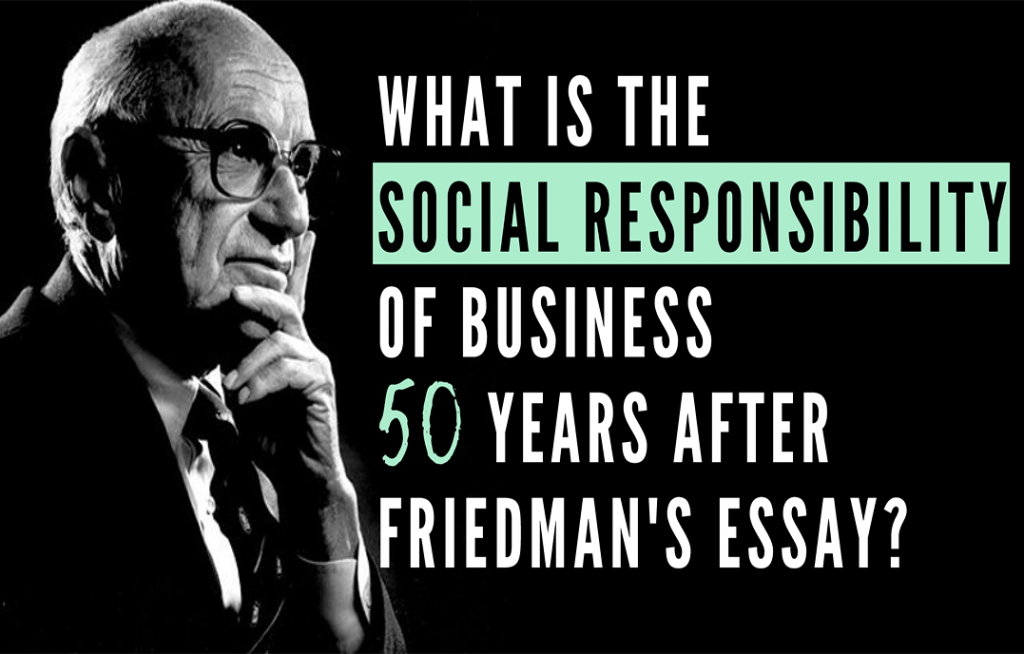“The social responsibility of business is to increase its profits.” That statement was part of an article written by economist Milton Friedman for The New York Times Magazine 50 years ago this past weekend. In the article, Friedman argued that the more profits that were returned to shareholders, the more money shareholders could use to do social good.
Friedman’s position seemed plausible in the 1970’s. The world’s resources were treated as unlimited. Short-term numbers were valued over long-term strategy. The environmental and social impact of global supply chains went largely ignored.
We’ve since raised awareness that our resources are indeed limited, short-term thinking is unsustainable, and humans all over the world share a desire to be treated with dignity and respect. Today’s savvy leaders understand that long-term sustainability that accounts for multiple stakeholders and short-term returns for shareholders are mutually exclusive.
The Business Roundtable agreed with this position in 2019, stating that, “While each of our individual companies serves its own corporate purpose, we share a fundamental commitment to all of our stakeholders.” Leaders who are in tune with the shift toward long-term value creation understand that corporate social responsibility (CSR) is a good business strategy. Here are five ways in which businesses with a strong commitment to CSR have a competitive advantage:
1. Consumer demand.
Consumers see their purchasing decisions as a conduit to taking accountability in their own lives. A 2018 study funded by the Economist reported that 85% of consumers are more likely to buy from a company with a reputation for sustainability than from a neutral company if their prices were equal. A recent study from Unilever states that 33% of consumers purchase products with sustainability in mind.
2. Talent attraction.
Kevin Jones of Good Capital calls this “meaning premium.” People want to work for a company that allows them to contribute to a greater purpose and are willing to be paid less for the opportunity. When employees are part of a larger mission and feel their contributions make an impact in the world. They’re engaged, proud and motivated.
3. Innovation.
More companies like Nike, GE and Interface, a modular carpet company, are using sustainability to drive innovation. Twenty-six years ago, Interface’s late CEO Ray Anderson committed the company to a zero waste initiative by 2020. Since then, Interface has eliminated hundreds of millions of dollars in resource and waste disposal costs, increased sales by more than one billion dollars and changed the way the entire carpet industry does business.
4. Lower marketing costs.
Your mission will help your marketing. SurveyMonkey is best known for its simple survey creation software, but its Contribute platform was created to give back to deserving causes. For every survey completed, SurveyMonkey donates 50 cents to the survey taker’s charity of choice from a selection of Contribute partners. In February 2020, the company announced that it had donated more than $15 million to organizations such as the Humane Society, Plant-for-the-Planet, the American Red Cross, and Larkin Street Youth Services.
5. Future-bound company.
Successful companies that others evangelize and model represent more than just a product or service. They represent a philosophy, culture or experience. When you channel this back into your business, you’ve made your competitive edge that much edgier.
The social responsibility of business is more than returning profits to shareholders. Having a social and environmental mission is a long-term value creation strategy that is key to lasting success.
Question: What is the social responsibility of your business? How do you make your employees and customers aware of this mission?




